Jake Wood was nine when he first met Anna Scher, and he didn’t know what had hit him. “She was just this whirlwind of energy. I was like: ‘What the hell is that?’ I’d never met anybody with that drive. I was a bit intimidated, to be honest.” The actor, best known for playing Max Branning in EastEnders, told his mother he didn’t want to go to Scher’s theatre school. His mother persuaded him otherwise. “And it changed my life. I don’t know what I would be doing if it weren’t for Anna Scher.”
Scher is celebrating her 50th year teaching drama. In that time, she has created numerous stars, given hope and purpose to kids who had none, started her own theatre, seen it taken away from her, had a traumatic breakdown and fought her way back to good health and standing. At 73, she is once again thriving – and getting the recognition she deserves. She was a guest on Desert Island Discs in 2011, received an MBE in 2013 and last week was given a lifetime achievement award at the National Film awards.
Meet a successful working-class actor who grew up in north London, and the chances are he or she will have learned their trade with Scher. When Daniel Kaluuya won the 2018 rising star Bafta last month, he thanked her in his acceptance speech. Her mention was greeted with a whoop and a round of applause.
Scher started out as a primary school teacher working with children whose first language was not English. In lunch breaks and after school she started a drama class in the school library. In 1970 it moved to a council hall across the road. Actor Linda Robson went to the drama class with her schoolfriend and future Birds of a Feather co-star Pauline Quirke. “None of us really wanted to be actors,” says Robson. “It was like a youth club. The pensioners used to play bingo after the drama class, so when we were doing our class all the old girls used to be chatting all the way through it.” In 1975, Scher took over an old church in Islington, which was renamed the Anna Scher Theatre and established as a charity.
Back then Scher charged 10p a class. If there were two or more pupils from one family, it was 20p for the lot. “We weren’t like drama school kids with jazz hands and tap shoes. Kids from Anna’s did gritty drama like Scum,” Robson says.
When Scher started out she had no interest in making stars of her children, and it has never been a priority since. “The fact that people went on and had careers in acting was a beautiful byproduct of what she did,” Wood says. “Actually what she wanted to do was get kids off the street. Islington was very rough in the 60s and 70s. That was her drive: to give kids something to do.”
Scher has always focused on improvisation. Comedian and EastEnders actor Tameka Empson was seven when she joined the theatre. “I was one of those children who couldn’t keep still. I was watching a children’s programme one day and I just went to my mum: ‘I want to be on TV.’” Her mother sent her to Scher. Empson remembers her first improvisation – and how it taught her that you could be anybody in drama. When children start at Scher’s theatre they are paired up with a mentor; Scher chose a girl who was considerably older and taller than Empson, and asked Empson to play the girl’s mother. “I just imitated my mother with my hands on my hips and finger wagging, and it worked. I was always comfortable. Nothing was ever bad with Anna, though it could always be improved. It was always positive.”
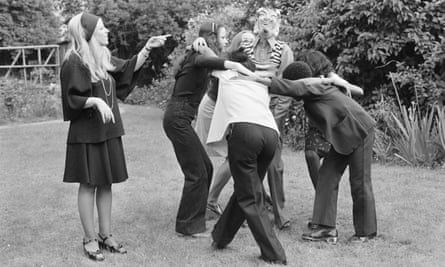
It is 33 years since Susan Tully appeared in the first episode of EastEnders as Michelle Fowler – the 16-year-old pregnant with Den Watts’ baby. By then she had already spent a decade at Scher’s theatre. She first came across Scher on a bandstand at Highbury Fields in north London. The youthful teacher was asking children to talk about their worst experience. “I was with my dad, and put my hand up and went on stage, and talked about jumping on the bed, falling off and hitting my head and having to get a couple of stitches. She said: ‘You projected very well, and thank you for sharing that with us.’ I felt about a foot taller, and when I came down I said: ‘What’s projection, Daddy?’ That’s another thing I learned quickly with Anna. She never patronised, never talked down. She was the first teacher I could have a one-to-one with.”
Tully admits she adored Scher – to the point that it worried her. “I was mesmerised by this lady. I remember coming home one day, and I was nine or 10, and I said to my mum: ‘Mummy, I really love Anna. Is that all right?’”
With her beads and bracelets, long hair and alice bands, it is easy to mistake Scher for a free-spirited hippy. But everybody I speak to stresses her ferocious discipline. “Even now I’m scared of being late, and that comes from Anna,” Wood says.
“No matter how tough the kid was, no matter who they were, she didn’t put up with any shit from anybody,” Robson says. “She demanded respect and got it.”
The actors still quote her rules like a mantra. “Don’t be late, don’t chew gum, be considerate to other people,” Tully says. “If you’re just on time you’re late because you’re not ready to start.”
Scher describes herself as an Irish Jewish Lithuanian integrationist. As a young woman she wanted to act, but her dentist father insisted she got a proper job, so she taught. As a drama teacher, she focused on naturalism. She wanted her children to be as real as possible.
“There was no ‘Eyes and teeth, darling’ with her. It was all about just being. She drummed into us three basics – believability, listen to one another and share it with the audience,” says Tully, who is now an established director. “Even today I see actors not doing that and it makes me despair.”
The funny thing is that Scher’s students thought she was a terrible ham. “You know what? Anna Scher was the worst actress I’ve ever seen,” Linda Robson says. “She had a small part in a Children’s Film Foundation film we did, and she was absolutely terrible.” She giggles. “We were all like: how can she be such a good teacher and be such a bad actress?”
Tully laughs when I mention Scher’s acting. “Oh yeah, bless her. The best way to put it is she exaggerated stuff slightly.” Yet Scher produced the most astonishing array of talent – from Phil Daniels and Kathy Burke in the 70s, to swathes of the casts of Grange Hill and EastEnders in the 80s and onwards, directors Joe Wright and Thea Sharrock and, more recently, Kaluuya and Reggie Yates. Before long, directors and casting directors would pop down to the theatre when scouting for talent – particularly working-class talent.
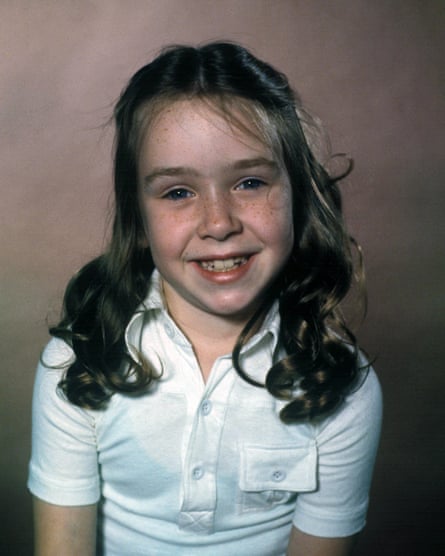
“But it wasn’t just working-class kids,” Tully says. “I made some of my first middle-class friends at Anna’s. It was the only one for working-class kids to go to in that area, but also the only one for middle-class kids at the time. It was a mix of all classes, all cultures.”
But, Tully says, it’s true that the theatre became better known for its working-class actors. “So when you had directors like Alan Parker looking for working-class actors they knew where to go. And Anna shouted loud and clear: ‘Look at the kind of kids I’ve got!’ So she did champion the working-class kids there, but not to the exclusion of the middle-class kids.”
Tully doubts she would have become a director without Scher. In classes, Scher would ask if anybody had an idea for a little play, and whoever raised their hand was allowed to take half a dozen classmates downstairs to the coffee bar for 10-15 minutes to thrash out character and plot. “These plays would last five to six minutes and I would say well over 50% of the children at some point did one. Anna would ask the whole class afterwards to give it marks out of 10 and constructive feedback. Whoever got the highest points got put forward to an evening of plays at the end of term.” Did anybody ever give two or three out of 10? “No. People were always supportive and if there was something they didn’t like, it was always said in a way that didn’t upset anybody.”
Scher started an agency to look after her young prodigies, which was largely run by her husband, Charles Verrall. Again there were strict rules. “You weren’t allowed to be in commercials before the age of 16,” says actor-director Adam Deacon. “She felt you have to understand the product you were selling, otherwise it was just exploitation. Any other drama school would have been desperate to get the work.”
Nor were you allowed to big yourself up if you had got a good job. “Whoever went off to do TV was never allowed to boast about it,” Wood says. “Anna was always firm on those kids to keep them grounded about the money they got or the experiences they had. They weren’t allowed to come back and be full of themselves. They were just part of the class.”
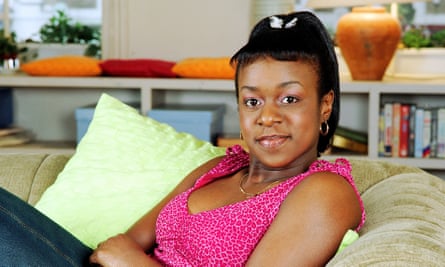
Former students say they didn’t simply learn about acting; they learned values. Conflict resolution has always been part of Scher’s curriculum, for example. “More than just giving me a career or direction in life, she gave me a moral compass,” Wood says. “She’d teach you about Mahatma Gandhi and you’d learn respect for others. Over time, by osmosis, all these things would become part of you.”
In 2000, Scher fell into a deep depression and had a breakdown. She took leave from the theatre. Two years later she was given a clean bill of health and said she was ready to return. Impossible, the board of trustees told her. They had appointed a full-time principal to replace her.
There was a sustained and ultimately unsuccessful campaign by friends and former students to have her reinstated. “She was treated abysmally,” Wood says. “She had mental health problems and went away to get well again, and in that time the theatre was taken away from her because she’d never owned it. The board gave her lots of stipulations of what she could and couldn’t teach if she came back, which was absolutely ridiculous for a genius one-off teacher like Anna.”
Scher never returned to her theatre, which was renamed the Young Actors theatre. Andrew Harries, its artistic director since 2005, says his colleagues have “huge respect and admiration” for Scher, but he has a different take on her departure. “To my knowledge, Anna was treated with the utmost kindness and fairness by the board of trustees at the time,” he says. “She was given the opportunity to return, but sadly this did not work out.”
Today, Scher teaches from a hall in a nearby church. Empson recently attended a party there to celebrate Scher’s half-century of teaching. “I passed the building that I started going to when I was seven,” she says. “It hurt me so much to see that building stand there and her to not be in it. I stopped at the traffic lights and I was welling up.”
Tully says she doesn’t really want to go into it, beyond saying that “massive mistakes were made” when Scher was ill. “It was a very difficult time. I visited her in hospital and at home, and my memory of that time was watching my friend, who I loved, in a very dark space. It was incredibly sad. There were a couple of bouts, on and off for a couple of years.” Has Scher recovered? “I think it’s left its mark. But she’s managing. She’s recognising that it was an illness and it still is. The fact that she’s still doing what she loves and what people love her doing is what keeps her healthy.”
Deacon also had a breakdown a few years ago. He got in trouble with the police, and in 2015 he was sectioned under the Mental Health Act. He says if it wasn’t for Scher, he might have ended up in prison. He visited her when she came out of hospital “and she said to me: ‘You can feel better’ and I could tell that she was the old Anna Scher. Her being herself, being back to normal, making jokes – she was letting me know you can get through it. Just by her being her old self, I knew there was hope, that I’d get out of it.”
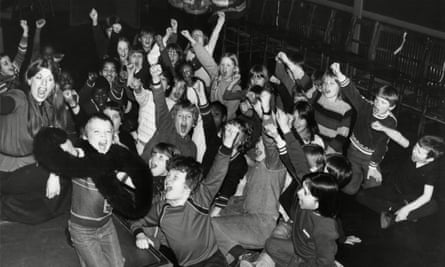
Scher does not put in the hours she once did – just two lessons a week, one class with secondary school students, another with adults. But she has got back her optimism and drive. When I ask which of her alumni might talk to me, she provides an exhaustive list of household names; then she phones back with a few more. Everybody I speak to says she is partly responsible for where they are and who they are.
Tully was 10 when Scher’s theatre celebrated its 10th anniversary in 1978. She played the birthday girl in a semi-improvised show called Tenth Birthday. “Having been there for the 10th, there was no way I was going to miss the 50th,” Tully says. “Anna took one of the classes she still teaches and gave us a snapshot of the things they do today. I remember doing some of the same things myself – the songs, the exercises, tongue-twisters, pairing up for improvisations. Then she gave the space over to the class to do their little turns.” For Tully, so much of her life was contained in that room. “There was something reassuringly the same.” She pauses. “It was very moving, you know.”
“It was so emotional,” Empson says. “I remembered being one of those kids looking at Anna and looking out at an audience. She’s still got that sparkle in her eyes. She’s still full of energy. You can’t keep a good girl down.”
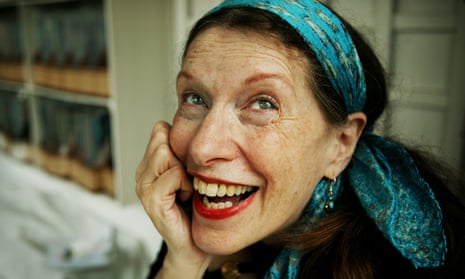
Comments (…)
Sign in or create your Guardian account to join the discussion